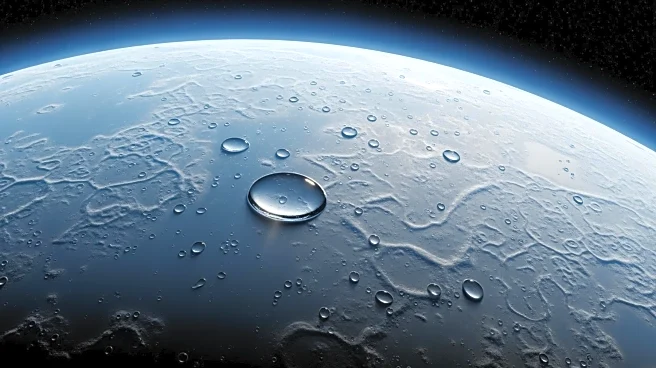What's Happening?
Scientists reexamining data from NASA's Cassini spacecraft have discovered complex organic molecules on Saturn's moon Enceladus. These molecules, ejected from powerful jets near the moon's south pole,
suggest active chemical processes within its hidden ocean. The findings, published in Nature Astronomy, strengthen the case for Enceladus as a promising location to search for life beyond Earth. The discovery adds to evidence that the moon's ocean environment may support life, prompting interest in future missions to explore Enceladus up close.
Why It's Important?
The detection of organic molecules on Enceladus is significant for astrobiology, as it suggests the presence of building blocks for life in the moon's ocean. This discovery enhances the likelihood that Enceladus is habitable, making it a prime target for future exploration. Understanding the chemical processes on Enceladus could provide insights into the origins of life and the potential for life elsewhere in the solar system. The findings also highlight the importance of continued investment in space missions to uncover the mysteries of our universe.
What's Next?
The European Space Agency (ESA) is considering a mission to Enceladus to further investigate its ocean environment and search for signs of life. This mission would involve flying through the moon's jets and potentially landing on its surface to collect samples. The data from Cassini will guide the selection of scientific instruments for the mission, which aims to provide a deeper understanding of Enceladus's habitability. The success of such a mission could have profound implications for our understanding of life beyond Earth.
Beyond the Headlines
The discovery of organic molecules on Enceladus raises questions about the potential for life in extreme environments. It challenges our understanding of habitability and the conditions necessary for life to thrive. The findings also underscore the importance of international collaboration in space exploration, as missions to Enceladus will require cooperation between space agencies and scientific communities. The pursuit of knowledge about life beyond Earth continues to drive innovation and inspire future generations of scientists.









